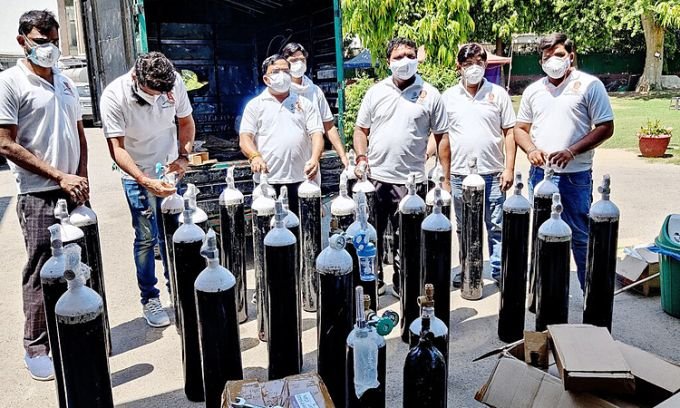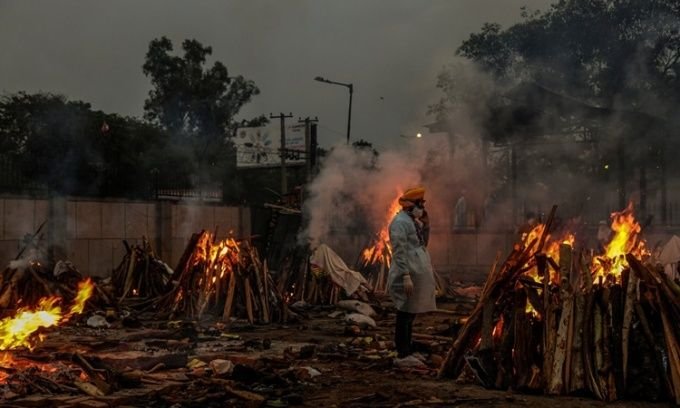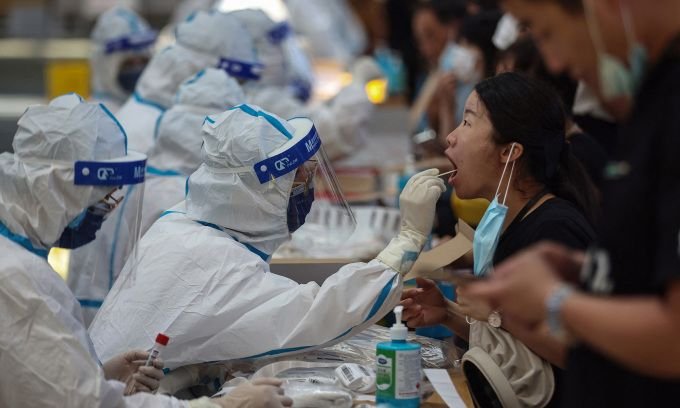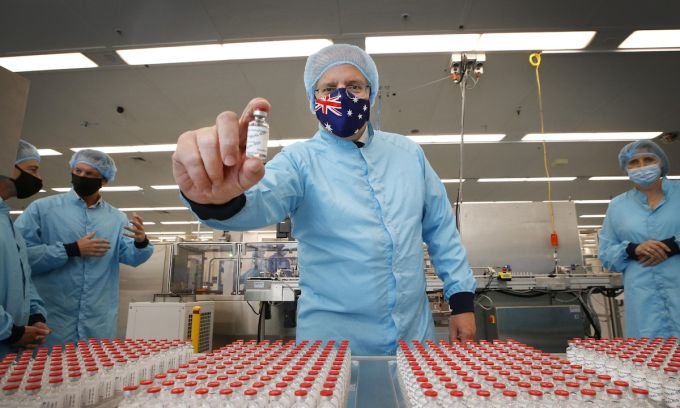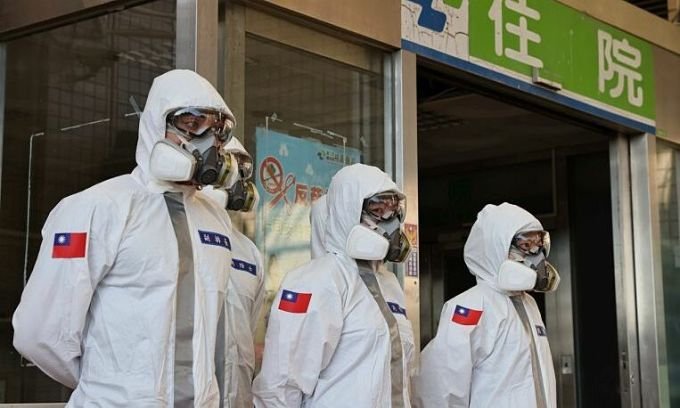`I am looking for a plasma donor for my sister who is hospitalized in Noida. She is infected with nCoV and is 43 years old,` Gill’s sister wrote, after all the calls to doctors, friends and relatives.
Srinivas B.V., a politician in the Indian capital New Delhi, near the city of Noida where Rajni Gill’s family lives, read the post via Twitter.
Srinivas, as president of the youth wing of the opposition Indian National Congress party, currently leads a group of 1,000 people, including 100 in New Delhi.
`The government and systems have collapsed. I have never seen so many people die at the same time. The work I am doing with my team may be just a grain of sand in the desert, but it is still useful.`
Indian Youth Association headed by Srinivas B.V.
In the context of an unprecedented outbreak of Covid-19 in India, the health system is `engulfed` with about 400,000 new infections and thousands of deaths every day, as well as families and friends of those infected with nCoV.
Some people need medical oxygen, which is now almost impossible to find in New Delhi, India’s pandemic `hotspot`.
Srinivas said posts asking for help on Twitter and Facebook started spreading `like wildfire` from early April. So, Srinivas created the hashtag #SOSIYC so people could connect with the Indian Youth Council (IYC).
India’s online Covid-19 support network is currently evaluated quite loosely, relying on tools and techniques commonly used in marketing, along with forms of messaging on social networks.
Instead of just retweeting articles, Abhishek Murarka, a finance professional in Mumbai, decided to search further using the terms `verified`, `confirmed` and `available`.
Hundreds of miles away, Praveen Mishra, who runs a startup in the city of Bangalore, watched Murarka’s video and applied his own filters to search for hospital beds, oxygen and drugs.
`Initially I felt extremely scared, that there were too many cases and I couldn’t help at all. But now, I am calling 20 contacts every day and verifying their needs,` said Mishra.
Some people even try to exploit resources around the world.
Jois’s team then asked several Indian companies to link to the listing on their apps or websites.
`The best thing about social media is that you trust strangers,` Jois said.

A volunteer from the Indian Youth Association shows how to use an oxygen tank.
However, as India is in crisis and travel is restricted, social media is the only way for some people to seek help like Aditya Jain, a New Delhi resident.
Jain’s aunt has a spinal condition, and his uncle has diabetes and needs dialysis every week.
Through LinkedIn, a social networking platform specializing in job search and recruitment, Jain found an organization that took care of the elderly.
Srinivas said he now receives at least 10,000 messages a day on Twitter and checks them all.
Srinivas volunteers collect information from people who need help, then classify them according to risk level, then cooperate with local teams to arrange hospital beds and provide plasma for cases.
However, the difficulties facing the Indian health system are so many that it cannot help everyone.
Regardless, Chaudhuri was still grateful.
For Gill, a gynecologist in Noida, the plasma Srinivas’ team found saved her life.
`I feel choked up. In a moment of life and death, I was helped by complete strangers without any intention,` Gill said.






